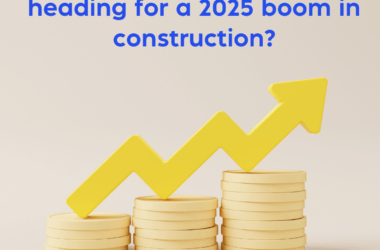In today’s construction landscape, environmental, social, and governance (ESG) considerations are no longer optional—they’re essential. As the UK pushes for greener, more socially responsible, and transparent practices across industries, subcontractors play a pivotal role in shaping how ESG initiatives are implemented on the ground.
For subcontractors, understanding and integrating ESG is not just about compliance; it’s about staying competitive, attracting clients, and securing long-term growth in an evolving market.
What is ESG in Construction?
ESG refers to a framework used to evaluate an organization’s environmental, social, and governance practices. For the construction sector, ESG priorities include:
- Environmental: Reducing carbon emissions, minimizing waste, sourcing sustainable materials, and adopting energy-efficient practices.
- Social: Prioritising worker safety, diversity, local community engagement, and fair treatment of employees.
- Governance: Ensuring transparency, ethical practices, and effective leadership throughout the supply chain.
Subcontractors, as key contributors to construction projects, are expected to align with the ESG goals of the main contractors and developers they work with.
Why ESG Matters for Subcontractors
- Meeting Client Expectations
Developers and main contractors are under increasing pressure to meet ESG standards from regulators, investors, and clients. Subcontractors who understand and implement ESG practices will be seen as valuable partners in helping achieve these goals. - Winning More Projects
ESG compliance is becoming a prerequisite for tendering on many high-value projects. Subcontractors with documented ESG policies and practices have a clear advantage over those without. - Navigating Regulatory Requirements
The UK government is committed to achieving net-zero carbon emissions by 2050. Regulations like the Building Safety Act and evolving standards for waste management and emissions mean subcontractors must stay ahead of the curve to avoid penalties and project delays. - Reducing Costs Through Sustainability
ESG isn’t just about spending money to meet standards; it’s about finding efficiencies. Sustainable practices such as waste reduction, energy-saving equipment, and lean construction techniques can reduce costs over time. - Attracting and Retaining Talent
The younger workforce increasingly values employers who prioritise environmental and social responsibility. By committing to ESG, subcontractors can enhance their appeal to skilled workers and reduce staff turnover. - Enhancing Reputation and Brand Value
ESG isn’t just a trend—it’s a marker of modern, forward-thinking businesses. Subcontractors who demonstrate their commitment to ESG enhance their reputation within the industry and among clients and stakeholders.
How Subcontractors Can Begin Their ESG Journey
- Understand Your Impact: Assess your current operations to identify areas for improvement in environmental performance, worker safety, and governance practices.
- Set Clear Goals: Develop measurable ESG targets, such as reducing energy consumption, improving waste management, or enhancing diversity within your workforce.
- Collaborate with Partners: Work closely with suppliers, clients, and contractors to align on ESG goals and share best practices.
- Embrace Digital Tools: Technology can help track and report ESG performance, whether it’s monitoring emissions, streamlining procurement, or ensuring compliance.
- Communicate Your Efforts: Share your ESG commitments and achievements with stakeholders. Transparency builds trust and strengthens relationships.
The Time to Act is Now
ESG is no longer a future consideration for UK construction—it’s a present reality. Subcontractors who proactively embrace ESG will not only meet the demands of today’s market but also position themselves as leaders in building a more sustainable and equitable future.
At The Build Chain, we’re here to help subcontractors navigate the complexities of ESG and integrate best practices into their operations via our platform with Scope 3 CO2 emissions savings on material delivery purchasing options on the market and social value via ensuring a local supply chain of both suppliers and trades.
Together, we can build a more resilient and responsible construction industry.





Comments 1